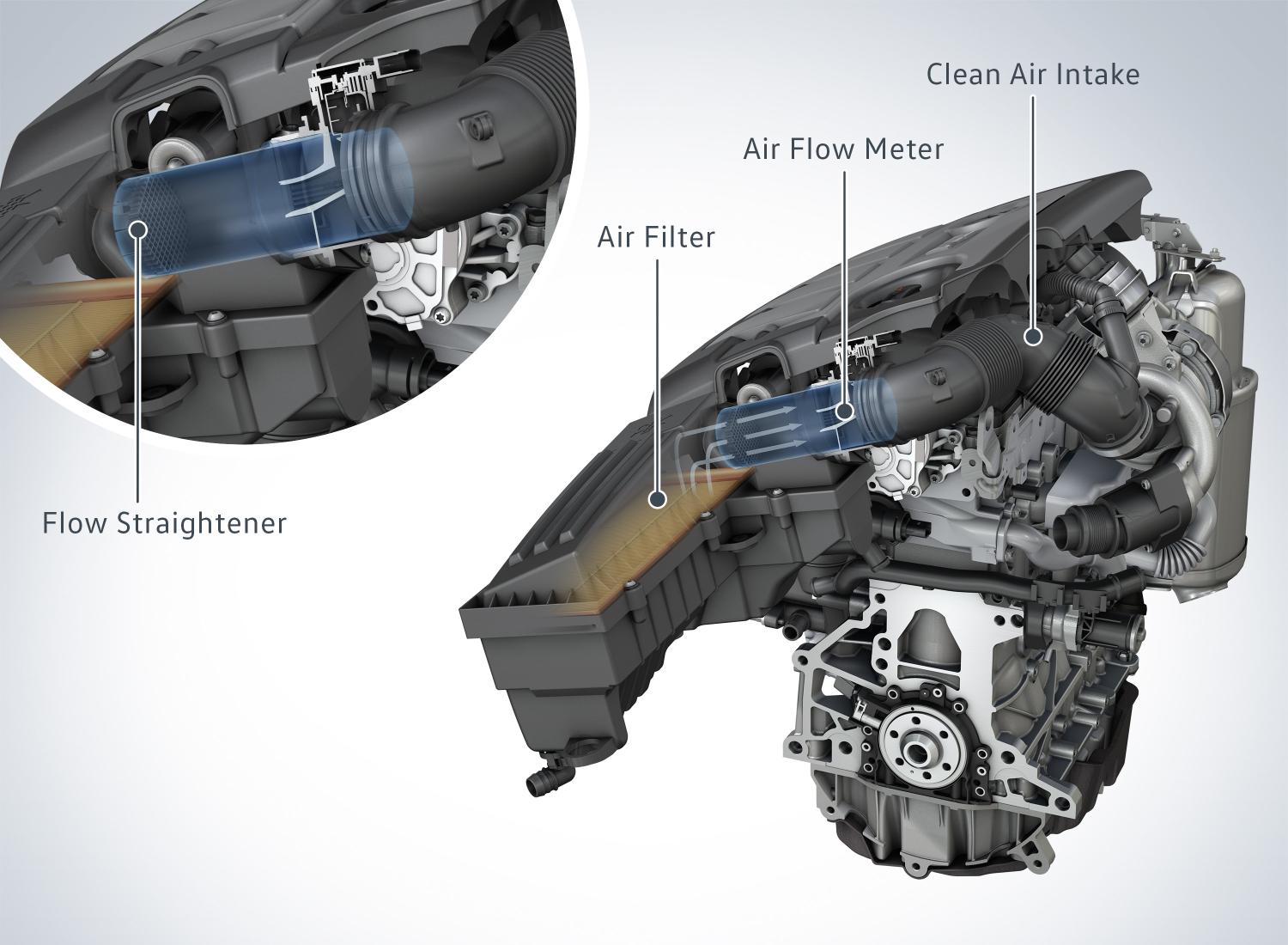This Is How Volkswagen Is Fixing Europe’s Dieselgate Cars
Here’s the moment VW diesel owners have been waiting for. The under-fire manufacturer has just revealed how it intends to fix the Europe-based diesel engines that were found to feature a ‘defeat device’, which would trick testing equipment into reading low nitrogen oxide (NOx) levels. The company has been working on 1.2-, 1.6- and 2.0-litre versions of the EA 189 engines to find ways to bring NOx levels below the regulatory limit, while targeting no “adverse effects on the engine output, fuel consumption and performance.”
The first outcome of those efforts has now arrived in the form of a technical measure to be applied to the 1.6-litre engine. Here’s Volkswagen’s official explanation for the modification:
A “flow transformer” will be fitted directly in front of the air mass sensor on the 1.6-litre EA 189 engine. This is a mesh that calms the swirled air flow in front of the air mass sensor and will thus decisively improve the measuring accuracy of the air mass sensor. The air mass sensor determines the current air mass throughput, which is a very important parameter for the engine management for an optimum combustion process. In addition, a software update will be performed on this engine. The time needed for the implementation of the technical measures is expected to be less than one hour.

The upgrade has been accepted by the Federal Motor Transport Authority, and Volkswagen is currently in the process of figuring out the recall process for each European country. The first batch of recalls are expected to start in January 2016, while the rest of the engines are expected to be sorted by the end of the year. VW has also promised to provide a courtesy car to anyone who requires one while the work is being carried out, however it shouldn’t take more than an hour to fit the part.
As for the 2.0-litre engine, customers will be able to pop into their dealer once the recall has been issued to receive a free software update. The same is expected for 1.2-litre variants, but VW is waiting for confirmation of this. If you’re the owner of one of the VW Group’s other affected brands - Audi, Seat and Skoda - you can expect similar information soon.
Although Volkswagen is targeting no adverse effects on the car’s economy or performance, it says that the different applications of the engines across its range mean that it can’t confirm whether it has achieved this yet. It’ll be interesting to see exactly what effect these measures will have in the real world, and more importantly for the bean counters, whether owners start ditching the brand when it’s time to get a new car.
Comments
what about porsche diesels?
I love how hypocritical people are. They act like this is a massive deal, like it will halve their lifetimes, and chances are, they smoke a pack of cigarettes per day… I have friends like that.
Slowing and restricting airflow at the intake will not affect engine performance… Yeah okay
So you’re telling me that VW could achieve low emission levels without affecting performance in the first place, using a 2 dollar mesh, but instead took a billion dollar risk through fraud? Yeahhhh right…
Either VW is lying once again but getting away with it cause it already paid the price, or they just discovered a miracle mesh
It’ll be amusing to see this tested before and after, because I’m certain the software update will nerf the engine map and that bit of plastic will not make a squat of difference. I wouldn’t take my car in for the recall to leave with 10-15% less power.
Still not fixing mine, ‘cause ‘Merica
what about mine, it has software tuning, and a direct air intake ^^
Calm the air before the turbo? That doesn’t sound right.
so a spaghetti strainer fixes all problems?
Yeah more bull. Just pull that thingy out some time later, re-map the engine and enjoy your new performance!
Pagination